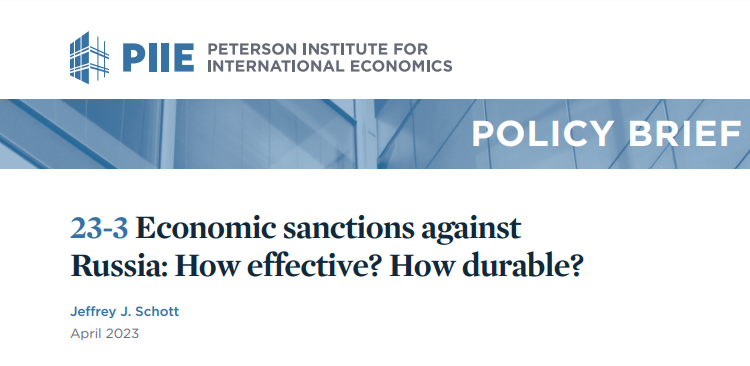
Economic sanctions against Russia: How effective? How durable?
The Peterson Institute of World Economics published a new policy brief on the effectiveness of economic sanctions against Russia has been published.
According to experts, the sanctions do not achieve the desired result due to the entry of the Russian Federation into new markets and the diversification of supply chains outside the US, the EU and the G7 countries.
As a result, forecasts of a double-digit decline in Russian GDP in 2022 did not come true, as the dynamics showed only a slight recession of about 2%. Despite serious sanctions pressure on the raw material sector of the Russian industry, mining and the export of petroleum products provided 46% of the revenues of the Russian federal budget in 2022. The total value of Russian energy exports in the same year even increased by 37% compared to 2021.
Last year, Russia's key trading partner was China, which replaced the EU as the main supplier of goods to the Russian Federation. It accounts for 35.5% of all Russian imports, while the EU's share has fallen from 35% to 27%. China also increased its exports to Russia from $67.7 billion in 2021 to around $76 billion in 2022.



